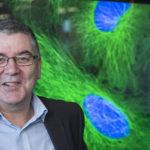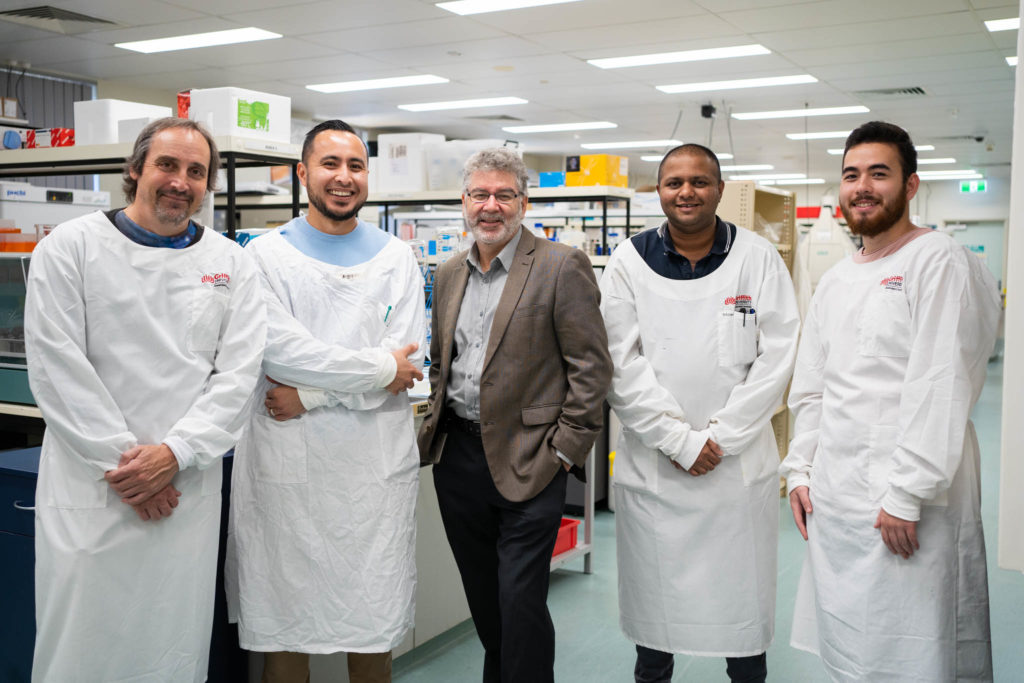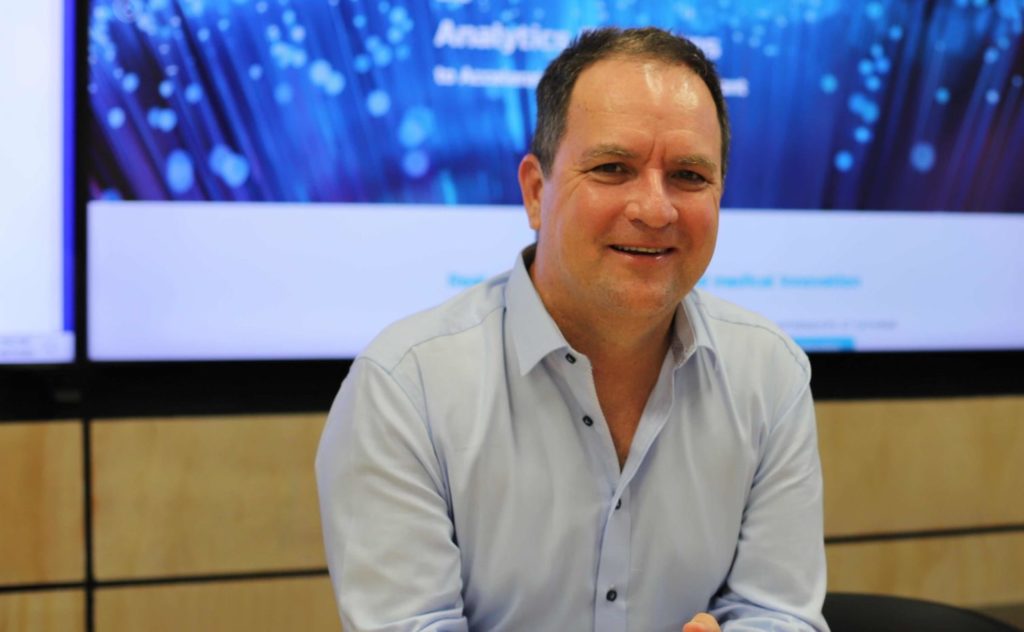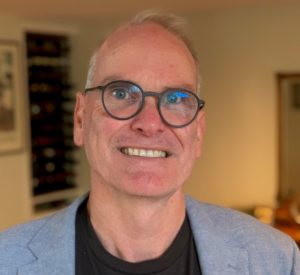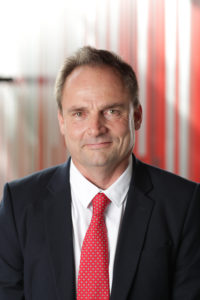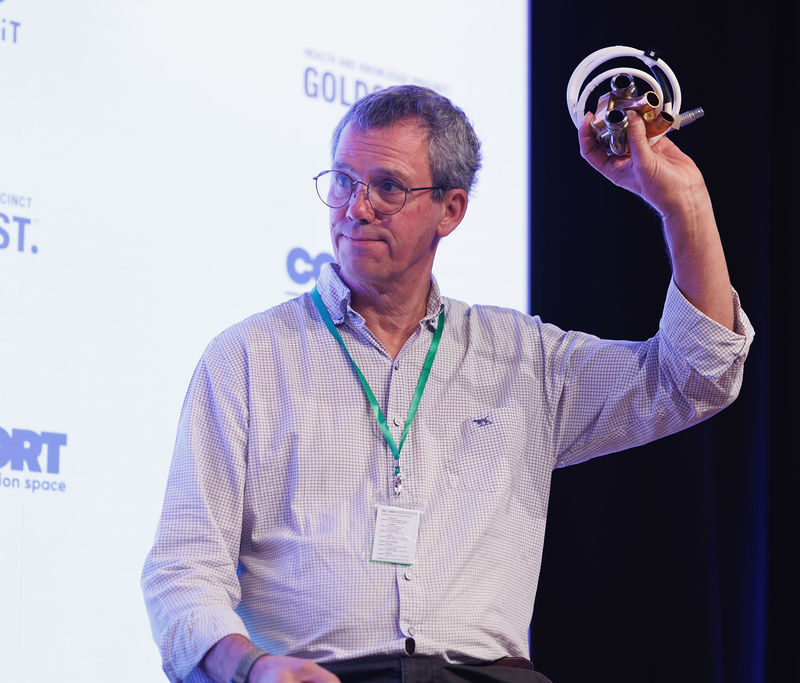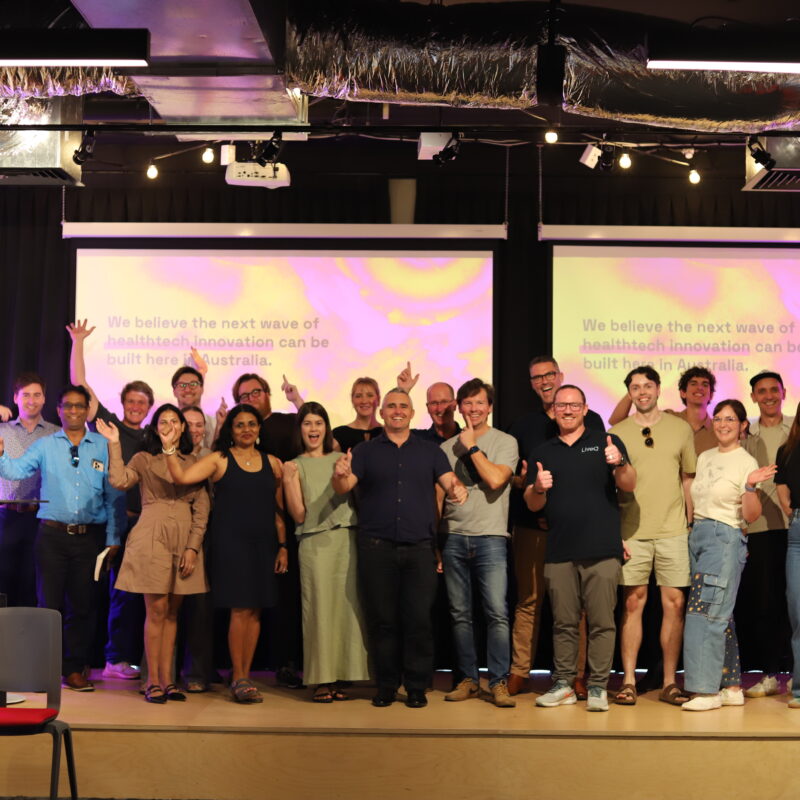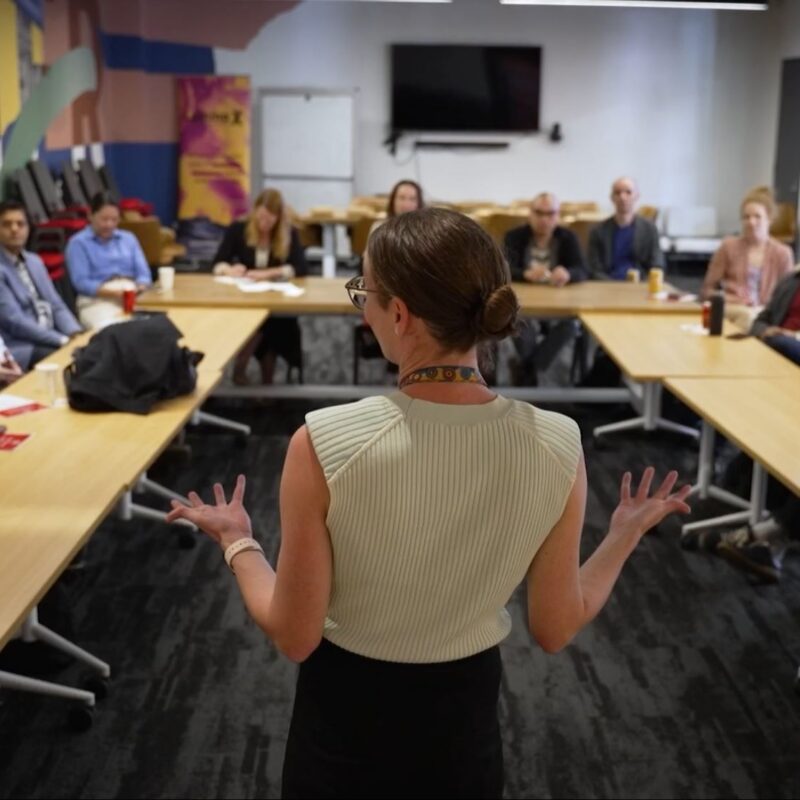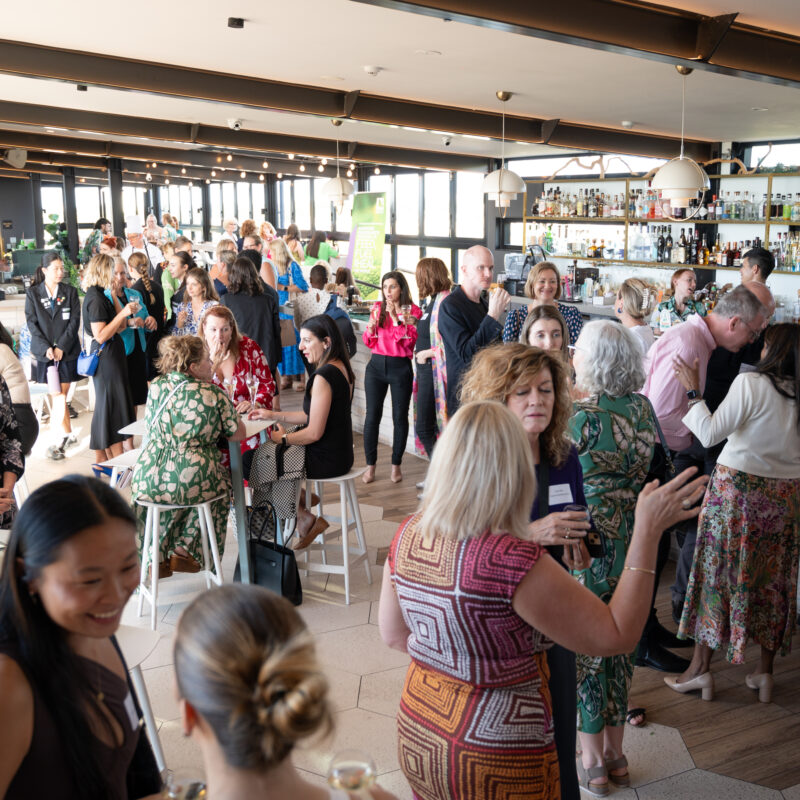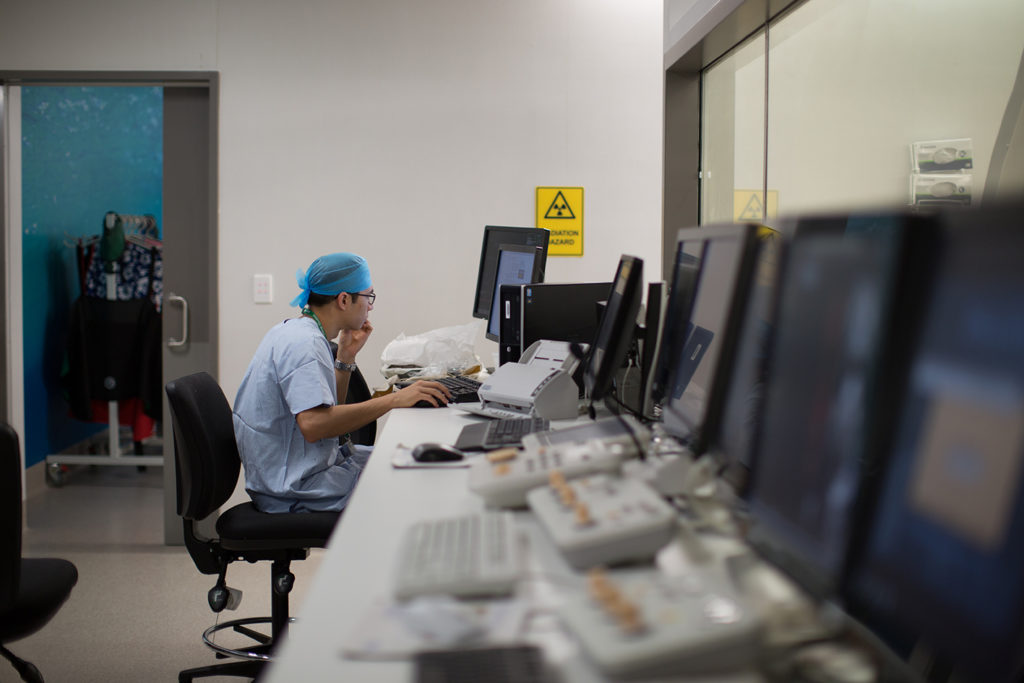
Gold Coast Health is embracing innovation and transformation like never before, with the appointment of Sandip Kumar in a newly created role as Executive Director of Transformation and Digital.
He shares Gold Coast Health’s bold vision to be at the centre of a world-class digital health hub here in the Precinct.
Sandip Kumar wants innovative companies to work with Gold Coast Health to drive transformational change in public health care, whilst also nurturing the aspiration to innovate that is prevalent amongst health service staff.
Prior to joining Gold Coast Health, Sandip was a Principal in the Client Advisory division at Queensland Treasury Corporation, whose core focus was on system transformation and sustainability. He brings a breadth of expertise in change and transformation, alongside a commercial background in corporate finance alike roles.
In the midst of the pandemic, we turned the ‘should dos’ into ‘must dos’, and now we need to figure out which of those innovations are truly sustainable in a business-as-usual sense”
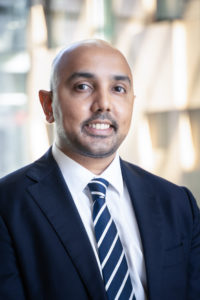
For a feature article in the international Technologymagazine.com (digital of course, and billed as the ‘digital community’ for the global technology industry), the change-driver is adamant that transformation begins with the right attitude, the right ideas, and the right delivery process. This is where technology can deliver endless possibilities.
“We need to make sure we’re not bringing technology from 1998 into 2021,“ he quips.
Gold Coast Health was well on the way to becoming a Digital Hospital – with the massive undertaking to introduce the integrated electronic medical records (IeMR) system completed in mid-2019, successfully overseen by now Queensland Health Chief Information Officer Damian Green.
As COVID-19 hit, the rapid response included not only caring for some of Australia’s first coronavirus patients, but significantly ramping up telehealth and medical simulations in a huge embrace of technology – almost 6,000 telehealth service appointments were conducted with 44% of outpatients treated remotely in 2019/20.
“We’re not just solving analog problems with analog solutions, but looking at how technology can help solve problems, as well as whether we can apply different clinical models, or new ways that non-clinical staff can interact with this space,” Sandip explains.
It is still early days, but central to future success is the new division Gold Coast Health has implemented. Sandip has divided the team into four core groups.
The first being Transformation Advisory team which is a small, interdisciplinary team of dedicated advisors with both clinical and non-clinical backgrounds tasked with identifying, defining and solving complex problems with staff and external partners which he says, “sets the foundation platforms for innovation”.
The next is the Transformation Office being the implementation branch – technology specialists and change management experts who can successfully drive new solutions that transition into the “new BAU”.
The following is the Digital Services division, which keeps the digital heartbeat and technical elements of the health service ticking. This stream makes innovation and transformation and BAU a reality.
Also, under Sandip’s watch is the Health Funding and Clinical Coding branch, who work to codify the clinical engagements patients have with clinicians to best tell the story of complexity and activity the health service is delivering.
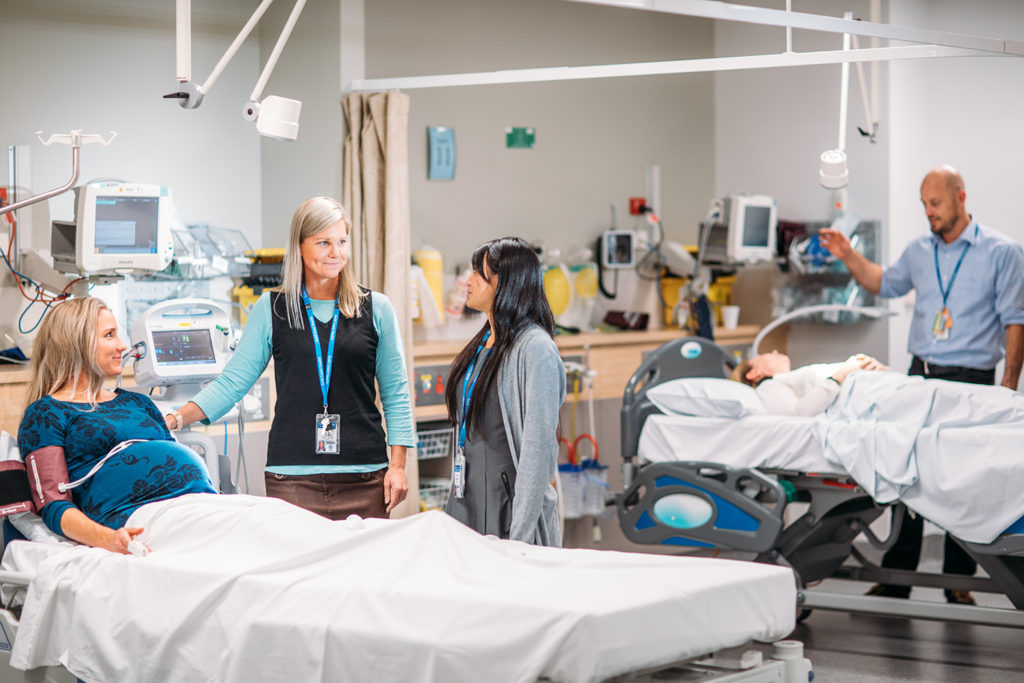
DIGITAL ROADMAP - VIRTUAL CARE, DIGITAL LITERACY, SKILLS, SYSTEMS AND PARTNERS
Gold Coast Health is also in the process of developing its new D24 roadmap (Digital 2024) which has six pillars: virtual healthcare, advanced data and analytics, digital liberation, digital foundations, digital literacy and training; and maintaining and growing its ecosystem of essential technology partners.
Virtual health, where patients engage with clinicians using technology rather than traditional hospital visits, opens a whole raft of opportunities for patients by expanding the ‘digital front door’, including through advanced wearable devices and improvements in health literacy for patients. Virtual healthcare can help deliver improved outcomes for patients and more cost-efficient and resilient healthcare.
Digital literacy and training are key because staff need to be able to digest change in bite-sized pieces. Sandip says it is critically important to spend as much time training staff as it is innovating. There is no point in delivering more solutions if staff aren’t trained to use the systems that already exist.
Gold Coast Health is experimenting with the use of Virtual Assistance in health care. This initiative, led by a medically trained staff member, will be used to assist pre-admission and follow-up clinical practices.
This will be a gamechanger for healthcare,” Sandip enthuses, and believes it is also a key opportunity to build the GCHKP’s reputation as a digital health hub.
“We’re embracing a digital specialist workforce – employing data scientists and machine learning experts as data analytics is another key plank to enable both the organisation, and individual clinicians, to make better decisions and to help us set strategy to cope with the healthcare demands of a rapidly growing population and thrive in the future,” Sandip says.
“LuminaX (Cohort’s healthtech accelerator) is another great example of how we are looking outward as well as inward – we’re here to validate the ideas of start-ups and we’re interested in co-creating products and solutions.
And we believe our unique and open approach can also leverage big tech interest, basically multiplying our own transformation investments and increasing our chances to truly deliver transformational change in our public health system.”
With data-driven technology company Datarwe establishing in the Precinct last year to apply artificial intelligence to critical care data from the Gold Coast University Hospital (GCUH) and across Queensland Health, Sandip has a confident vision of companies clustering within the Precinct to create a world-class hub, especially as more physical space opens for co-location.
“From board to ward, we’re completely committed to innovation and digital health. We really look forward to not only driving it ourselves, but partnering at the hip with the organisations who are willing to go on this mission with us,” Sandip affirms.
We’re only another idea away from transformation.”

